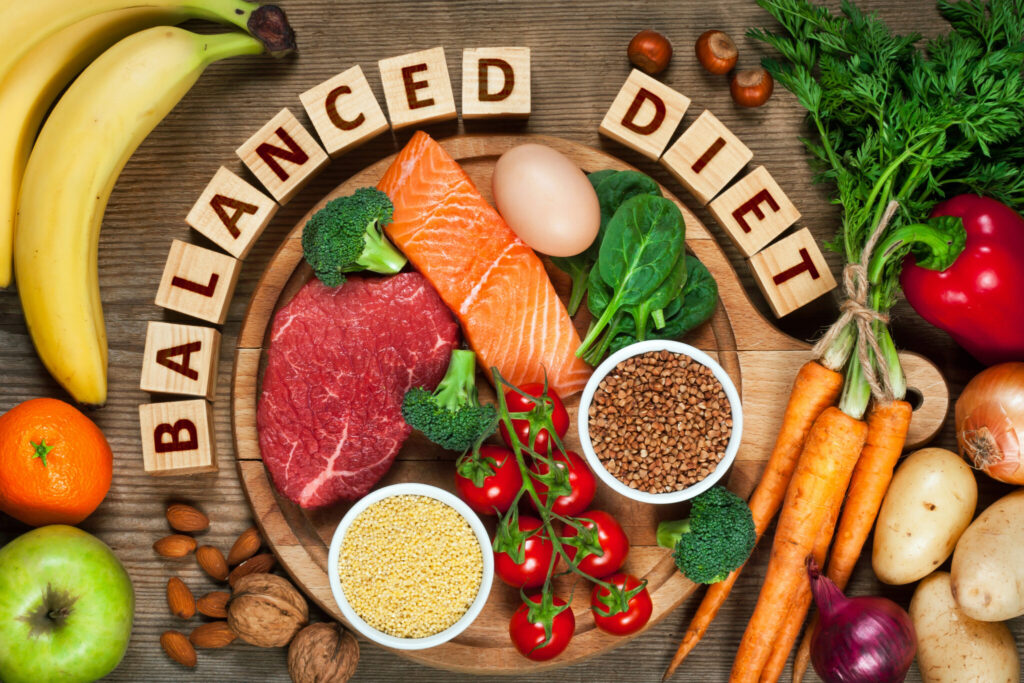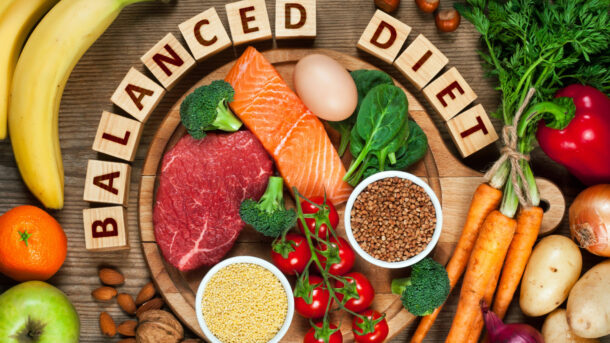Eating a healthy diet means consuming adequate nutrients and controlling the amount of calories consumed by combining food in a rational way so as to maintain the normal functioning and health condition of the body. Proper eating habits have a positive impact on the body, preventing many diseases and improving quality of life. In this paper, we will discuss the effects of a healthy diet on the body in terms of nutritional balance, cardiovascular health, immune enhancement and weight management.

Balanced Nutrition
A proper diet should contain a variety of nutrients such as carbohydrates, proteins, fats, vitamins and minerals. These substances are essential for the proper functioning of the body. Carbohydrates are the main source of energy for the body, proteins are the basis for building muscles and cells, fats are important for building cell membranes and providing energy, and vitamins and minerals are essential for regulating various body functions. By ensuring the intake of a variety of nutrients, the body can be provided with the energy and nutrients it needs to maintain proper functioning.
Cardiovascular Health
A healthy diet has a significant impact on cardiovascular health. A diet high in salt, fat and cholesterol increases the risk of cardiovascular diseases such as heart disease and stroke. On the contrary, a diet low in salt, fat and fiber can reduce the risk of these diseases. For example, consuming too much saturated fatty acids increases the chance of blood clots forming in the arteries, leading to myocardial infarction. And consuming more fiber-rich foods, such as fruits, vegetables and whole grains, can lower blood cholesterol levels and maintain the elasticity of blood vessels.
Immunity Enhancement
A healthy diet plays an important role in boosting immunity. The body’s immune system fights against foreign invading substances such as viruses and bacteria to maintain good health. A proper diet can provide the body with the right nutrients to enhance the function of the immune system. For example, foods rich in vitamin C, such as citrus fruits, can increase the body’s resistance to infection. In addition, some antioxidant-rich foods, such as nuts and fish, can help reduce free radical damage and improve resistance to disease.
Weight Management
Healthy eating is essential for weight management. Excessive intake of high-calorie foods can lead to weight gain, which increases the risk of developing chronic diseases such as obesity and diabetes. Healthy eating focuses on consuming the right amount of calories and emphasizes the quality of food. For example, choosing foods that are low in energy density and rich in dietary fiber, such as vegetables and fruits, can provide fewer calories while giving a feeling of fullness, which can help control weight.
Healthy eating has a significant impact on the body. By making adjustments to nutritional balance, cardiovascular health, immune enhancement and weight management, we can prevent the occurrence of many diseases and improve the overall health of the body. Therefore, we should develop good dietary habits, choose food wisely to ensure adequate intake of nutrients and maintain good health. Remember, a healthy body is the foundation for the pursuit of a happy life.



